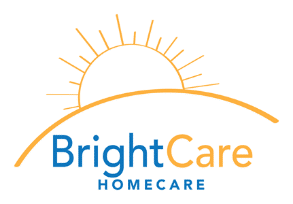The Veterans Administration does provide some financial support to qualifying veterans who need home care. This is done through a pension called the Aid and Attendance. It was developed following World War I as a way to provide financial support to soldiers returning from battle who had been injured.
Through the years, it has expanded and now provides financial assistance for veterans of all ages to afford in-home care and other elder care supports. For veterans under 65, they would need to be considered completely disabled to qualify for Aid and Attendance benefits. For veterans 65 and over, however, they don’t need to be considered completely disabled, but they need a doctor’s recommendation for Veterans home care support.
What veterans qualify for this pension?
Those who are considered wartime veterans. In other words, any veteran who served at least one day of their active duty service during a time when the United States was officially engaged in combat somewhere in the world is considered a wartime veteran.
No, they don’t need to have seen combat. The veteran could have had his or her first day of active duty service on the official last day of the Vietnam Conflict, for example, and would still be considered a wartime veteran.
Or, a veteran could have had his or her final day of active duty service on the day when the United States initially engaged in the Gulf War in 1991. As long as they are considered a wartime veteran, they may be eligible for financial assistance to pay for Veterans home care.
Also, their income and assets combined need to fall below a specific threshold as set forth by the VA. The VA sets this income and asset threshold limit each year. Some years it may be the same, but in other years it may differ depending on several factors.
Who else is eligible for this pension?
Spouses, dependents, and surviving widows of qualifying veterans may also be eligible to receive some financial support to pay for in-home care. Keep in mind, though, that the amount of assistance will likely be less for these individuals than it would be if the veteran required the in-home care himself or herself directly.
How long does the application process take?
The application should not take a long time to complete, but the approval process can be slow. In some years, veterans were waiting nine months or longer to hear whether they were approved for Aid and Attendance benefits.
Does this mean the veteran or his or her spouse or dependent or surviving widow has to wait to begin receiving in-home care, even though they will be approved? No. The VA does offer reimbursements for in-home care support services provided while the application was pending, so long as the application is ultimately approved.
If, however, the application is not approved (for whatever reason), the Veterans Administration does not offer reimbursement for services provided before that.
If you or somebody you know is a veteran or spouse, dependent, or surviving widow of a qualifying veteran and needs in-home care, encourage them to fill out and submit an application for Aid and Attendance benefits as soon as possible.
If you or an aging loved one are considering Veterans Home Care in Mandeville, LA, please contact the caring staff at BrightCare HomeCare today at (985) 224-0404
BrightCare HomeCare is a top provider of home care services in the Northshore areas including Mandeville, Covington, Madisonville, Hammond, Ponchatoula, Slidell, Lacombe, Abita Springs, Goodbee, St. Tammany Parish, and more.
Through a personalized care plan, BrightCare HomeCare provides the necessary services and care to cater to your unique personal and health needs. With us, we ensure around-the-clock services and supervision to help achieve optimum health and wellness.
We are a top provider of home care services in Lafayette, Youngsville, Broussard, New Iberia, Breaux Bridge, Carencro, Opelousas, Sunset, Crowley, Abbeville, Scott, Cecilia, Port Barre, Iota, and the surrounding areas.
- How Can You Convince a Senior to Bathe? - June 5, 2025
- How Does Respite Care Help the Whole Family? - May 22, 2025
- Is Yoga Helpful for Seniors? - May 8, 2025


